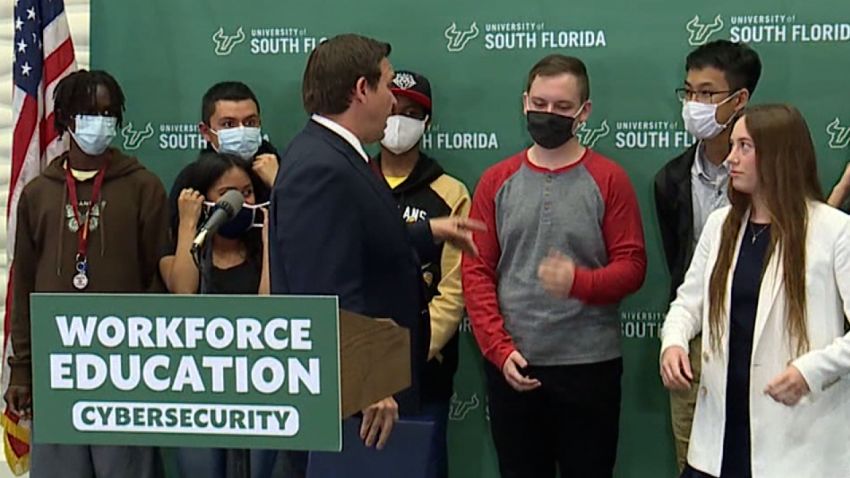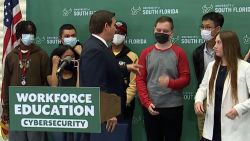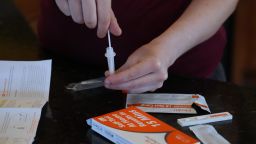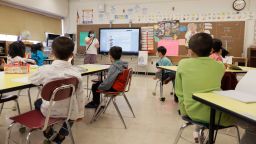As states roll back masking requirements for students, a new study shows that masks helped cut Covid-19 infections in public K-12 schools that required them in the fall.
The study comes from a partnership between the US Centers for Disease Control and the Arkansas Department of Health. Investigators looked at Covid-19 infections in Arkansas schools over a period of about seven weeks from August to October 2021, when the Delta variant was the major cause of infections. The study was published Tuesday in the CDC’s Morbidity and Mortality Weekly Report.
Overall, schools that required masks had 23% fewer Covid-19 cases on average than those that didn’t.
“This is a valuable finding consistent with other past data during the Delta wave,” Kristen Nordlund, a CDC spokesperson, said in an emailed statement.
The research compared Covid-19 infections in 233 public school districts. Among these, 30% required students and staff to mask up, 21% required masks part of the time, and 48% didn’t have mask requirements.
Mask policies had the most effect for older students and in combination with higher vaccination coverage.
Compared with districts that didn’t require masks, districts that did had 22% fewer Covid-19 cases among students in kindergarten through fifth grade; 31% fewer cases among students in grades six through eight; and 32% fewer cases among students in grades nine through 12.
Overall, vaccination coverage for students and staff ranged from 13.5% at the start of the study to 18.6% by the end.
Districts with higher vaccination coverage – with more than 40% of students and staff vaccinated – combined with mask requirements, had 38% fewer Covid-19 cases compared with districts without mask requirements.
The authors note that the study has some limitations. Researchers didn’t have information on ventilation or other community or school-based prevention efforts that could have also influenced the results. They weren’t able to tell how well people adhered to the masking rules in each district. And quarantine rules after students tested positive differed between schools with masked and unmasked students.
In accordance with CDC guidelines, students were less likely to be quarantined if they were wearing a mask while in close contact with a student who tested positive, a policy that researchers say may have made masks look less effective than they actually were.
The data was collected before the Omicron variant became prevalent in the United States.
The study is being released just a week after the CDC made consequential adjustments to how it measures levels of Covid-19 within communities.
Instead of looking solely to case counts and rates of test positivity, the agency is now advising state and local officials to base their Covid-19 mitigation measures on hospitalization rates and local hospital capacity, in addition to new case rates.
A CNN analysis of the data finds that 7% of the US population is now in counties with “high” Covid-19 community levels, where even healthy people are advised to wear masks.
Get CNN Health's weekly newsletter
Sign up here to get The Results Are In with Dr. Sanjay Gupta every Tuesday from the CNN Health team.
Many states had dropped mask mandates in schools, and at the beginning of February, 60% of the nation’s 500 largest school districts had mask requirements. Now, that number is just 32%, according to the data company Burbio.com. At one point in the school year, 18 states mandated masks in schools.
“As Omicron has become the predominant variant, COVID-19 levels have shifted nationally and CDC no longer recommends universal masking in all schools. Instead, CDC recommends masking in schools in areas with high COVID-19 Community Levels. CDC will continue to follow the data and science and ensure our recommendations meet the moment we’re in,” Nordlund said in the statement.
The American Academy of Pediatrics suggests that families continue to wear masks to protect children who are too young to wear a mask – under age 2 – or other family members who are immunocompromised or unvaccinated.


















